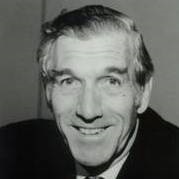EP85 Invited Address 04a - If You Desire to See, Learn How to Act - Paul Watzlawick, PhD
- Average Rating:
- Not yet rated
- Topic Areas:
- Invited Addresses | Psychotherapy | Communication | Therapist Development | Reframing | Strategic Therapy
- Categories:
- Evolution of Psychotherapy | Evolution of Psychotherapy 1985 | Pioneers in Couples and Family Therapy
- Faculty:
- Paul Watzlawick, PhD | Ernest Rossi, PhD
- Duration:
- 1 Hour 17 Minutes
- Format:
- Audio Only
- Original Program Date:
- Dec 12, 1985
- License:
- Never Expires.
Description
Description: Watzlawick explores the evolution of therapeutic language from insight to action, critiquing linear models in favor of systemic, behavior-focused approaches. Drawing on figures like Franz Alexander, Jean Piaget, and Milton Erickson, he illustrates how change often begins by acting "as if" transformation is possible. Through performative techniques and behavioral prescriptions, therapists can help shift perceived reality and foster meaningful adaptation.
Educational Objectives:
- To trace the development of therapeutic language from interpretation to injunctions
- To show the effect that this evolution has had on the idea of "reality adaptation," highlight the "as if" nature of our interpretations
*Sessions may be edited for content and to preserve confidentiality*
Credits
Handouts
| Timestamped Transcript (903.2 KB) | 21 Pages | Available after Purchase |
| Ericksonian Learning Snapshot (252.2 KB) | 2 Pages | Available after Purchase |
Faculty

Paul Watzlawick, PhD Related Seminars and Products
Paul Watzlawick, received his Ph.D. from the University of Venice in 1949. He has an Analyst's Diploma from the C.G. Jung Institute for Analytic Psychology in Zurich. Watzlawick has practiced psychotherapy for more than 30 years. He was research associate and principal investigator at the Mental Research Institute. He was Clinical Professor at the Department of Psychiatry and Behavioral Sciences, Stanford University Medical Center. Watzlawick is a noted family therapist; he is recipient of the Distinguished Achievement Award from the American Family Therapy Association. Also, he is author, co-author or editor of eight books on the topics of interactional psychotherapy, human communication and constructivist philosophy.
He formulated five axioms. They are:
- It is not possible to not communicate. Every behavior is some kind of non-verbal communication.
- Every communication has a content. In addition, there is 'metainformation', which says how the communicator wants to be understood.
- All partners involved in a communication process also interpret their own behaviour during communication.
- Human communication involves both verbal and non-verbal communication. In addition to the spoken words, there are is also a non-spoken part (gestures, behavior, intonation..) which is part of the communication.
- Communication between humans is either symmetric or complementary. This is based on whether the relationship of those communicating is based on differences or parity.

Ernest Rossi, PhD Related Seminars and Products
Ernest L. Rossi, PhD, is an internationally renowned therapist, teacher and pioneer in the psychobiology of mind-body healing. The author of more than 24 professional books, Dr. Rossi worked with Milton Erickson for eight years and co-authored three classic volumes on therapeutic hypnosis with him. Rossi has also edited four volumes of Erickson's Collected Papers and four volumes of Erickson's Seminars, Workshops and Lectures. He has been conducting research in the psychosocial genomics of ultradian rhythms and their relation to mind-body healing and psychotherapy for over three decades.


